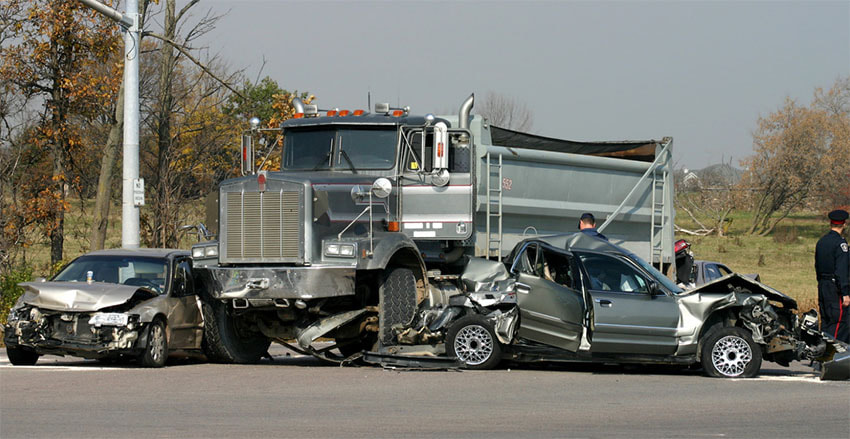Trucking Accidents Change Lives Driving has become so commonplace now that we often forget just how dangerous it can be. While safety precautions have come a long way since the first motor vehicles appears at the turn of the 20th century, one of the most effective precautions a driver can have is to simply be prepared and know that everything under the hood is performing well. After all, even minor road accidents can have life-altering consequences – or even worse, ones that end a life altogether. These dangers increase even more when bigger, heavier trucks or other machinery is involved: with more mass, they take longer to slow and stop when moving, and they cause much more damage when they hit something smaller. Many factors contribute to accidents when out on the road, beyond the usual blame of weather or unforeseen circumstances. When it comes to collisions between passenger cars and trucks, statistically what happens most often is that the cars veer into the truck’s lane and end up hitting the front, or getting caught beneath the side or rear bumper of the trailer. (The last one is especially dangerous, as the frames of those bumpers collapse when a vehicle breaks it, falling onto a smaller car with deadly results.) While it can be tempting to blame the passenger car drivers for these accidents, inspections have shown that about 75% of the trucks involved had defects that contributed to the final crash.
A report from the Insurance Institute for Highway Safety states that a truck with an “out-of-service” violation from a Commercial Vehicle Inspection Program (CVIP) is four times more likely to be in a crush incident than trucks without. These violations can be issued for problems like faulty brakes, fraying tire sidewalls, worn shocks, burned-out headlights, and improper tail or brake lights. Faulty brakes alone can triple the risk of being involved in a crush, and worn shock absorbers can add meters of stop time to a fast-moving rig – which could literally mean the difference between life and death. Furthermore, there is only so much a truck driver can do once on the road – they will accommodate extra space for longer braking (on average, about 40% more than passenger cars), and are more careful around intersections and other vehicles. But once up to highway speed and making split-second decisions, it comes down to the mechanical parts of the truck itself. That’s why we want you to be prepared before you even start the engine – so you won’t find yourself in the ditch after an accident. New technologies are extremely helpful in reducing the risk of a crash. Anti-lock braking systems, for example, allow wheels to spin during hard braking, which improves driver control of a skid and reduces the crush risk up to 65%. Electronic Stability Control, now mandatory on trucks and buses made after August 2017, also mitigates the chances of an uncontrollable truck. And even newer systems, like lane departure warnings, blind spot alarms, and forward collision detection are becoming increasingly common in the battle against automotive accidents. There’s no substitute for proper inspection and preparation, though, which will ensure your truck is ready for the road and up-to-spec on all its safety systems. West Tech Mobile is a professional CVIP inspection facility, and your safety is our main concern – our technicians will make sure you are as safe as you can possibly be before you leave our shop. And our repairs and recommendations are always made with the utmost quality in mind. Even if you’re out on the road and run into trouble – please don’t take the risk of trying to drive an unsafe truck. Call West Tech Mobile and our rescue mechanics will come to you in a fully-tooled service vehicle, ready to go the extra mile to reach you and get you home safely to your family. It’s what we do best! For further information on Truck driving accidents causes and statistics please visit https://www.truckdrivingjobs.com/faq/truck-driving-accidents.html Comments are closed.
|
|
What Sets Us Apart
• Service Trucks & Mobile Service • 5 Laptops & 1 North American automotive scanner • Commercial Vehicle Inspection Programs • Fleet Maintenance • Trailer Shuttles • Open 6 days a week |


 RSS Feed
RSS Feed
